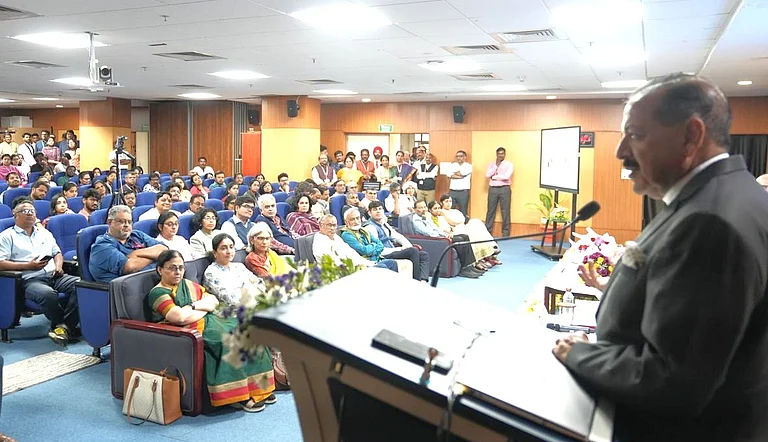Mashco Piro, an uncontacted tribe deep in the Peruvian Amazon have bee captured after members of it have been spotted in villages outside their traditional territory, the reason for which is being attributed to search of food and a safer refuge by a rights group.
The rare photos were released by Survival International on Tuesday, showing numerous tribe members relaxing by a riverbank.
According to FENAMAD, a local Indigenous rights group, increased logging activity in the area is likely pushing the tribe out of their traditional lands.
The members of Mashco Piro tribe, over the well-being of whom concerns have been growing, may be venturing closer to settlements in search of food and a safer refuge, as per FENAMAD.
Survival International reports the photos were taken in late June near the banks of a river in Madre de Dios, Peru's southeastern province bordering Brazil.
"These incredible images show that a large number of isolated Mashco Piro live alone a few kilometres from where the loggers are about to start their operations," said Survival International director Caroline Pearce.
More than 50 Mashco Piro people have been spotted in recent days near a village of the Yine people called Monte Salvado. Another group of 17 appeared in the nearby village of Puerto Nuevo, an NDTV report cited the NGO, which defends Indigenous rights.
Who Are The Mashco Piro
Living deep in the rainforests of south-east Peru, the Mashco Piro are believed to be the largest uncontacted tribe on Earth, numbering more than 750 people, according to Survival International.
The Maschco Piro are said to have survived a traumatic history of massacres and enslavement that have "made their determination to defend their territory very clear."
In 2002, the government, responding to appeals by FENAMAD, created the Madre de Dios Territorial Reserve to protect the Mashco Piro’s forest.
"In the area where Canales Tahuamanu operates, the loss of wide swathes of their land is pushing the Mashco Piro out of their forest. In recent years they have been appearing on river banks opposite settled communities of a related but contacted people, the Yine. On occasions they take bananas and yucca from the Yine’s vegetable gardens, or ask for machetes and cooking pots," Survival International's info on the Mascho Piro reads.
The Yine language is closely related to that of the Mashco Piro, and they can sometimes communicate when the Mashco Piro emerge to seek food and supplies, as per Survival International.
"Yine people often hear the Mashco Piro before they see them – they whistle before they emerge from the forest, mimicking the high, thin, trill of a tinamou bird, a warning to stay away while they collect turtles’ eggs from the riverbank, or help themselves to fruit and vegetables."


























